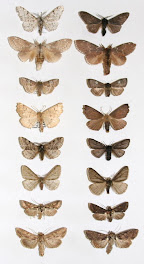My own experience in reading the biological literature is that evolution has very little to do with nuts and bolts biology (e.g., genetics, biochemistry, anatomy and physiology). Biologists, by and large, try to understand existing systems and structures — what they’re made of, how they’re constructed, and how they function. How they evolved is largely beside the point.
So, then how do you explain this:
Human Evolutionary Biology


and this:
Human Evolutionary Anatomy


and this, and this
and this
From the last book:
This book introduces students to the groups of vertebrates and explores the anatomical evolution of vertebrates within the context of the functional interrelationships of organs and the changing environments to which vertebrates have adapted.
Ooops, I forgot genetics:
Here, definitely this one. Lets not forget Origin and Evolution of New Gene Functions
From the book:
Sixteen contributions from international researchers address the origin and evolution of new gene functions. Coverage includes the molecular mechanisms involved in the creation of new gene structures as well as those population genetic processes that cause them to spread across a species and continue changing. A sampling of topics includes transposable elements and vertebrate protein diversity; the birth of human-specific genes during primate evolution; and recent evidence for the Exon Theory of Genes.
Doesn't sound like evolution is "largely beside the point" to me!
Thoughts From Kansas addresses some of the other errors and distortions in Dembski's post and I'll be addressing one aspect in part 3 of Biology and the machine.
Added later: corrected one of the links and added correct picture.








